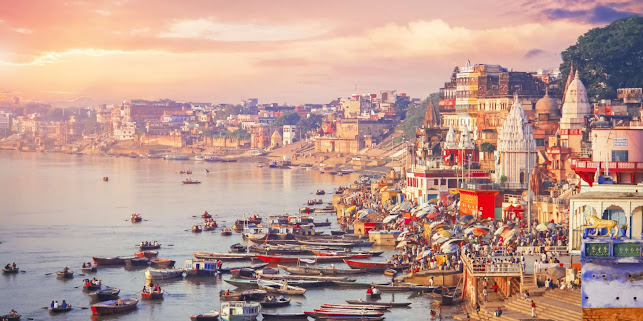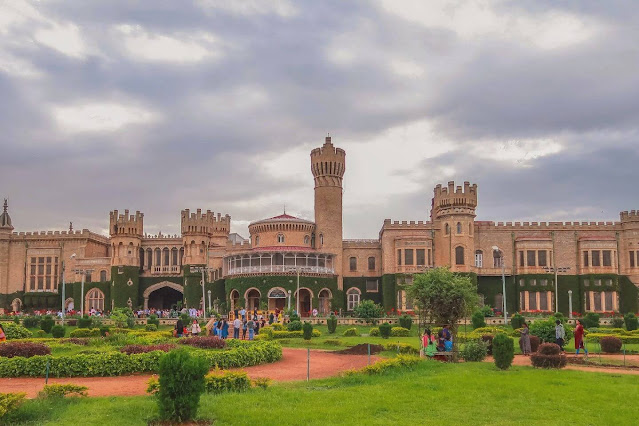Exploring Varanasi and Ayodhya
Varanasi and Ayodhya are two
of India's most culturally significant and spiritually vibrant cities.
Varanasi, also known as Kashi or Banaras, is one of the oldest continuously
inhabited cities in the world and is revered as the spiritual capital of India.
Ayodhya, on the other hand, is synonymous with the birthplace of Lord Rama, a
figure deeply embedded in Hindu mythology and culture. Both cities attract
pilgrims, scholars, and tourists from all over the world, offering a unique
blend of ancient history, religious significance, and cultural richness.
Varanasi, situated on the
banks of the sacred river Ganges in the state of Uttar Pradesh, holds immense
religious and cultural significance in Hinduism, Buddhism, and Jainism. It is
believed to be one of the oldest inhabited cities in the world, dating back to
more than 3,000 years. Varanasi is famous for its ghats, temples, spiritual
atmosphere, and the renowned Banaras Hindu University.
Ghats: Varanasi is renowned for
its numerous ghats lining the banks of the Ganges River. Dashashwamedh Ghat,
Manikarnika Ghat, and Assi Ghat are among the most prominent ones. Visitors can
experience mesmerizing sunrise and sunset boat rides along the river, witness
ancient rituals, and take part in the Ganga Aarti ceremony.
Kashi Vishwanath Temple: This iconic temple
dedicated to Lord Shiva is one of the holiest sites in Hinduism. It attracts
millions of devotees annually who come to seek the blessings of Lord Shiva. The
temple's architecture is a blend of Hindu and Mughal styles.
Sarnath: Located just a short
distance from Varanasi, Sarnath is where Lord Buddha delivered his first sermon
after attaining enlightenment. The site features the Dhamek Stupa, Mulagandha Kuti
Vihar, and the Ashoka Pillar, offering insights into Buddhist history and
architecture.
Banaras Hindu University
(BHU): One of India's premier educational institutions, BHU boasts an expansive
campus with beautiful architecture, museums, and the Bharat Kala Bhavan
showcasing a vast collection of Indian art and artifacts.
Tulsi Manas Temple: Dedicated to Lord Rama,
this modern temple is known for its beautiful marble structure adorned with
verses from the Ramcharitmanas, an epic poem written by the saint Tulsidas.
Cultural Experiences:
Ganga Aarti: Witnessing the Ganga Aarti
ceremony at Dashashwamedh Ghat is a must-do experience in Varanasi. The
rhythmic chants, synchronized rituals, and the sight of lamps floating on the
Ganges create a spiritually uplifting ambiance.
Exploring Old City: The narrow lanes and
bustling markets of Varanasi's Old City are a treasure trove of experiences.
From savoring local street food to shopping for silk sarees and handicrafts,
wandering through these alleys provides an authentic taste of Varanasi's
vibrant culture.
Accommodation and Dining:
Hotels: Varanasi offers a range of
accommodation options catering to all budgets. From luxury hotels overlooking
the Ganges to budget guesthouses and homestays, there's something for every
traveler.
Cuisine: The local cuisine of
Varanasi is rich and diverse, reflecting its multicultural heritage. Must-try
dishes include Banarasi chaat, litti chokha, kachori sabzi, and the famous
Banarasi paan.
Ayodhya:
Overview:
Ayodhya, located in the
Faizabad district of Uttar Pradesh, is revered as the birthplace of Lord Rama,
a central figure in the Hindu epic Ramayana. The city holds immense religious
significance for Hindus and also boasts a rich historical heritage.
Major Attractions:
Ram Janmabhoomi Temple:
Believed to be the birthplace of Lord Rama, the Ram Janmabhoomi Temple is at
the heart of Ayodhya's religious landscape. The temple complex includes the
sanctum sanctorum and various other structures dedicated to Lord Rama.
Hanuman Garhi: Perched atop a hill,
Hanuman Garhi is a temple dedicated to Lord Hanuman, known for its massive
statue of the deity and its strategic location offering panoramic views of
Ayodhya.
Kanak Bhawan: This ornate temple
dedicated to Lord Rama and Goddess Sita is known for its exquisite architecture
and vibrant wall paintings depicting scenes from Hindu mythology.
Nageshwarnath Temple: Another significant temple
in Ayodhya, Nageshwarnath Temple is dedicated to Lord Shiva and is believed to
have been established by Kush, one of Lord Rama's sons.
Cultural Experiences:
Ramayana Circuit: Ayodhya is part of the
Ramayana Circuit, which encompasses various destinations associated with the
epic Ramayana. Visitors can explore sites such as Chitrakoot, Panchavati, and
Hampi, each holding its own significance in the Ramayana narrative.
Attend Aarti: Participating in the
evening aarti ceremonies at the temples of Ayodhya offers a spiritual
experience and a glimpse into the devotional fervor of the devotees.
Accommodation and Dining:
Hotels and Guesthouses: Ayodhya offers limited but
comfortable accommodation options, including guesthouses and budget hotels.
Since it's primarily a pilgrimage destination, the focus is on providing basic
amenities for travelers.
Cuisine: The local cuisine of
Ayodhya is predominantly vegetarian and influenced by North Indian flavors.
Visitors can enjoy dishes like kachori, chaat, sabzi, and sweets like peda and
jalebi.
Conclusion:
Varanasi and Ayodhya, both
steeped in history and spirituality, offer travelers a glimpse into India's
rich cultural tapestry. Whether it's the ancient ghats of Varanasi or the
revered temples of Ayodhya, each city has its own unique charm and allure.
Exploring these destinations provides not only a spiritual journey but also an
opportunity to immerse oneself in the vibrant traditions and customs of India.
From boat rides on the Ganges to temple visits and cultural experiences,
Varanasi and Ayodhya promise an unforgettable travel experience for pilgrims,
history enthusiasts, and cultural aficionados alike.












Comments
Post a Comment